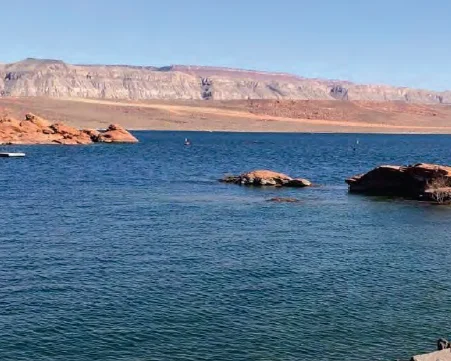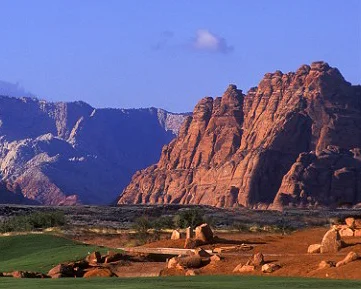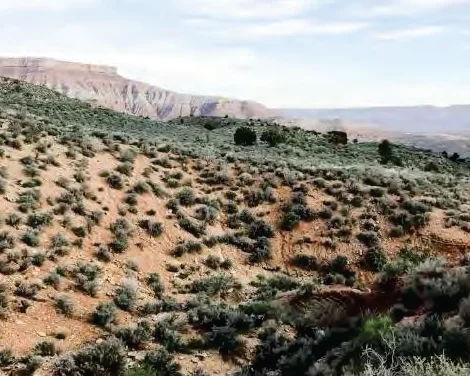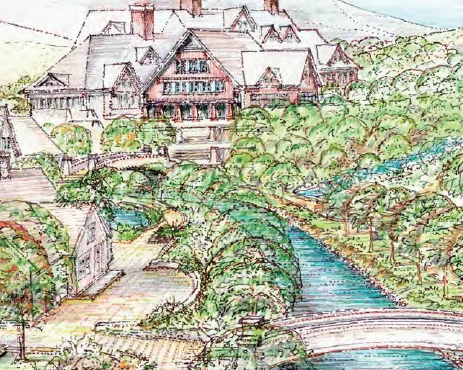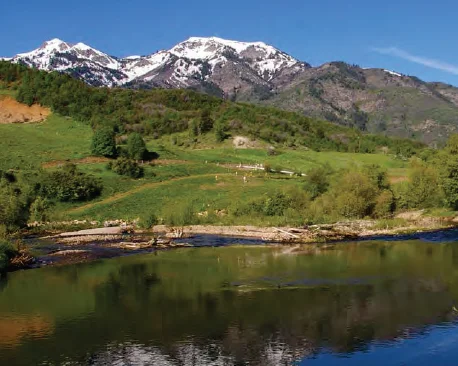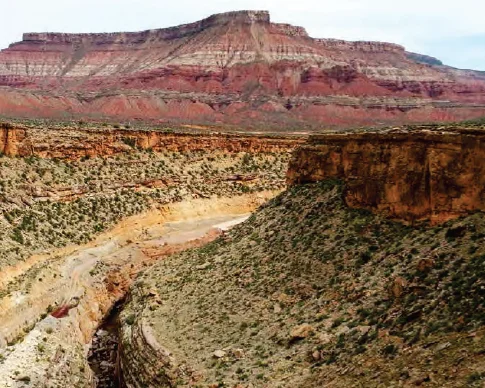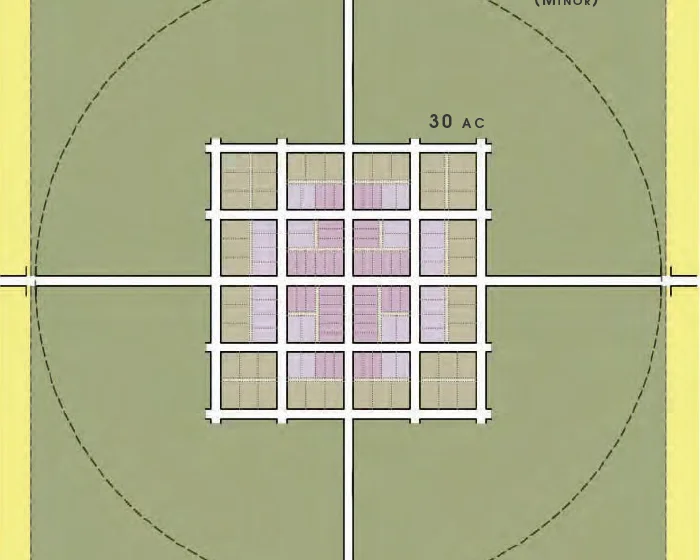Village
A smaller assembly of neighborhoods (3 – 5) than for a town, with a modest center supported by local transit and a long ped-shed of 2,640 ft. (1/2 mi.) to the transit node.
- CONTEXT: Location in regional transect, configuration of defined growth sectors, and landscape character determine scale and density of a village.
- NEIGHBORHOODS: Derived from appropriate growth policy for the context, character and density may range from urban-to-rural, high-to-low.
- POPULATION: Range of dwelling units between 600-3,000 per neighborhood, depending on context, transit, and employment proximity.
- CENTERS: Range between 40-125,000 s.f. (independent of smaller neighborhood centers).
- MOVEMENT ARMATURE: High speed thoroughfares do not bisect the village unless controlled by boulevard design.
Village
A smaller assembly of neighborhoods (3 – 5) than for a town, with a modest center supported by local transit and a long ped-shed of 2,640 ft. (1/2 mi.) to the transit node.
- CONTEXT: Location in regional transect, configuration of defined growth sectors, and landscape character determine scale and density of a village.
- NEIGHBORHOODS: Derived from appropriate growth policy for the context, character and density may range from urban-to-rural, high-to-low.
- POPULATION: Range of dwelling units between 600-3,000 per neighborhood, depending on context, transit, and employment proximity.
- CENTERS: Range between 40-125,000 s.f. (independent of smaller neighborhood centers).
- MOVEMENT ARMATURE: High speed thoroughfares do not bisect the village unless controlled by boulevard design.
